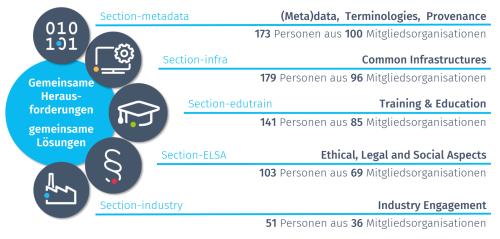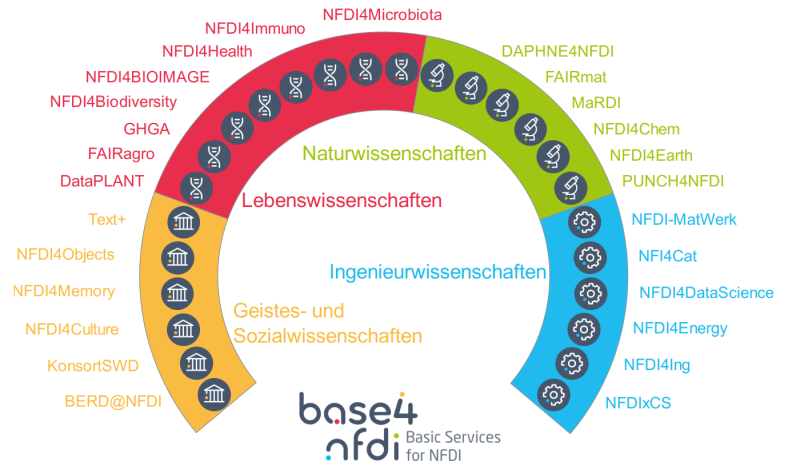The National Research Data Infrastructures (NFDI)
In addition to the consortia, there are cross-cutting issues that are treated as separate sections. These are:

- section-metadata: (Meta) Data, Terminology and Provenance (-> Concept)
- section-infra: Common Infrastructures (-> Concept)
- section-edutrain: Training & Education (-> Concept)
- section-ELSA: Ethical, Legal & Social Aspects (-> Concept)
- section-industry: Industry Engagement (-> Concept)
In cooperation with the Service for Research Data Management at FSU Jena an Overview for the NFDI-Consortia was created. Also the contact persons are listed there.
On the NFDI YouTube channel you can also find a playlist of all previous ToolTalks and of all previous InfraTalks as well as recordings of the services roadshow by base4nfid.
In an InfraTalk, consortia present their work. In addition, exciting research data management topics are on the agenda, for example on legal issues, education and training or common standards. Specific tools and services that are used or (further) developed in the NFDI community are presented in the ToolTalks. Questions, feedback and objective discussions are absolutely welcome in these talks.
Even though there is no official overview of all the services offered by the NFDI consortia and sections, a survival kit has been compiled for anyone working in research, research support and/or research data management who would like to gain an overview of the NFDI. In Addition the NFDI-N(HAW)igator (doi.org/10.5281/zenodo.13973397), which emerged from the FDMScouts.nrw funding line, is a first step in this direction. The document, originally conceived by Eva Eilert and Martin Reiter for advising scientists at Universities of applied sciences (HAW in German) in NRW, provides orientation and impressively illustrates the breadth of infrastructures and services.
The latest version is available as a concept board: https://app.conceptboard.com/board/n8ur-rpq3-tx1f-q20d-kfb5

